Brenda’s Business with ISAMAYA FFRENCH
|Brenda Weischer
The inner workings of fashion shows mostly remain opaque — even for frequent attendees. Despite having watched a myriad of documentaries, read every book I could, or listened to podcasts, what happens behind the curtains a few hours before the show starts is, for the most part, still a mystery to me. When writers and editors get to interview the designer after the show, few traces are left of what really happened backstage. Makeup artist and beauty entrepreneur ISAMAYA FFRENCH and her team are long gone by the time the show is fully wrapped up, rushing their 90 kilograms worth of makeup kits to the next show.
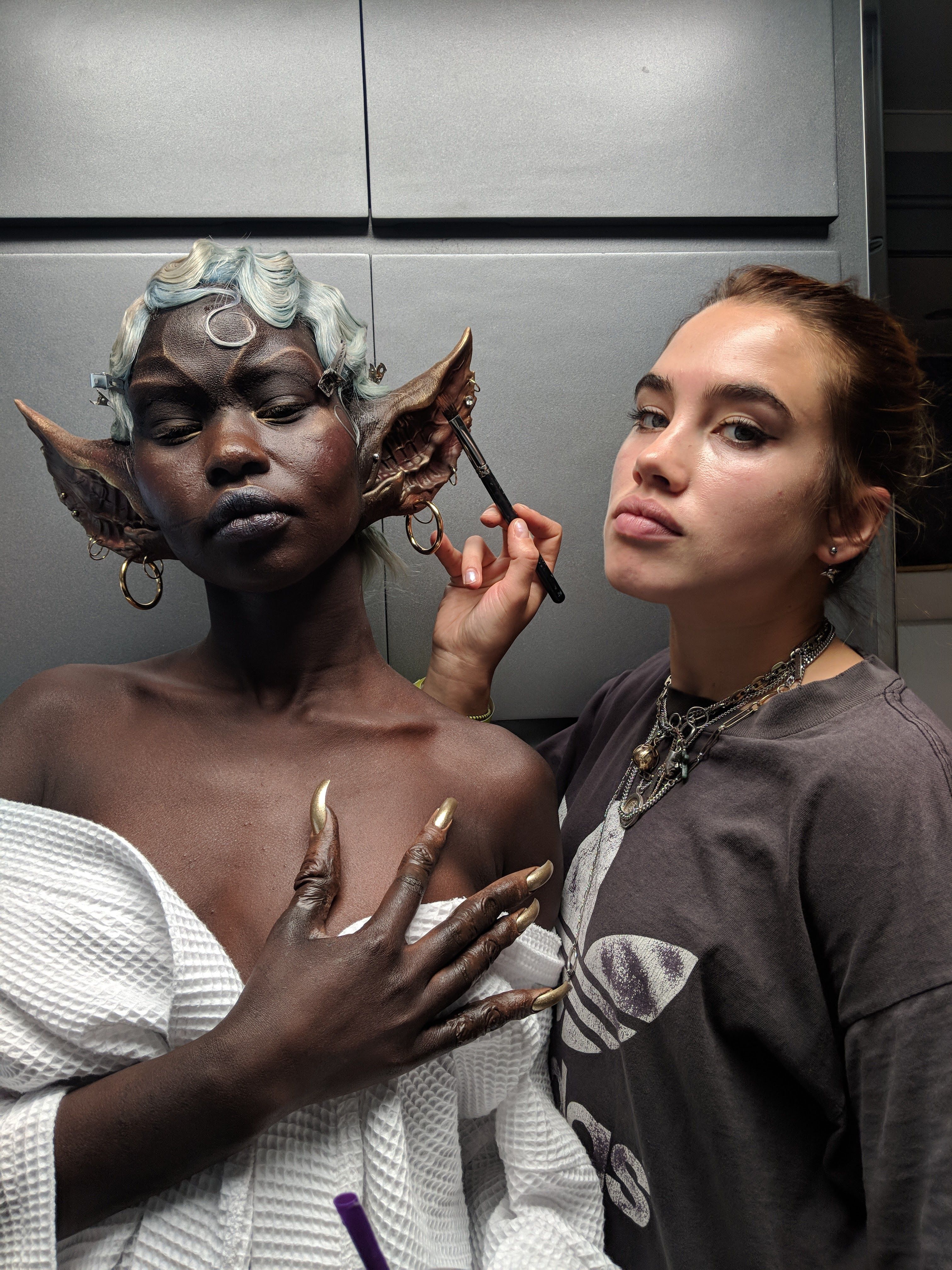
Isamaya called me from her backyard in London. But just as we began to dive into all things glamorous —
Isamaya Ffrench: I just put my hand in bird shit!
Brenda Weischer: Do you have a tissue on you? Should I call you back?
IF: I’ve got a garden hose! But you’re welcome to open the intro to the interview with that.
Unphased by the unexpected interruption, we finally were able to get into the dirt of things, so to speak.
BW: I watched your social media stories daily during fashion month and have one million questions. How did you start working for all these shows? How bound are you to the brands, and how far in advance do you know you’ll be working for Yohji Yamamoto, for example? Is it weeks, months?
IF: Usually, the designers let me know a few weeks before the show whether they plan to work with me. So much labor goes into their collections. I imagine they’re mostly not even thinking about who's going to be working on the show. They're focused on the clothes. In the last weeks before the show we have a rehearsal. Then we have around three hours to come up with a look, unless we were given any pre-information on what they would like specifically.
BW: You only know a few weeks prior to fashion week for which clients you’ll be working?
IF: The YEEZY show was different, I found out the night before that I was doing it. Other designers with whom I have an amazing relationship such as Vivienne Westwood or Junya Watanabe have a conversation about working together again a couple months prior to the show. Honestly, some are working on their collection until 4am right before. They're so consumed with the clothes. Why would they be thinking about hair and makeup until the last possible moment?
BW: I had assumed you already had contracts for the next season.
IF: No contracts. I might get no bookings and do no shows in February — no idea. I sponsored quite a few shows this season, so we did know those in advance. The show is about the designer. At the end of the day, we are there to support their vision.
BW: What does sponsoring a show consist of?
IF: When my brand sponsors the show it means that I provide the makeup, the makeup teams and presence backstage, as well extra video content for the brand. I work a lot with MAC Cosmetics — they sponsor a lot of my shows.
BW: How many people are included in your team, and are they on payroll or freelancers? If I’m a makeup artist, how do I become part of Team Isamaya?
IF: No one's on the payroll. Everybody is a freelancer. You just ask if you want to work for me. I have up to 60 makeup assistants who I can call to action. I also have a core team: a first, a second, and a third assistant who do everything with me. Then I have a group of great, very loyal, and supportive artists who do pretty much every show with me. Some assistants do the full season and travel across all four cities — New York, London, Milan and Paris. Then there are locals I work with. I've built up a great number of contacts over the years through trials, recommendations, personal outreach, and people who contact my agency and ask to assist.
BW: Do these artists only work for you?
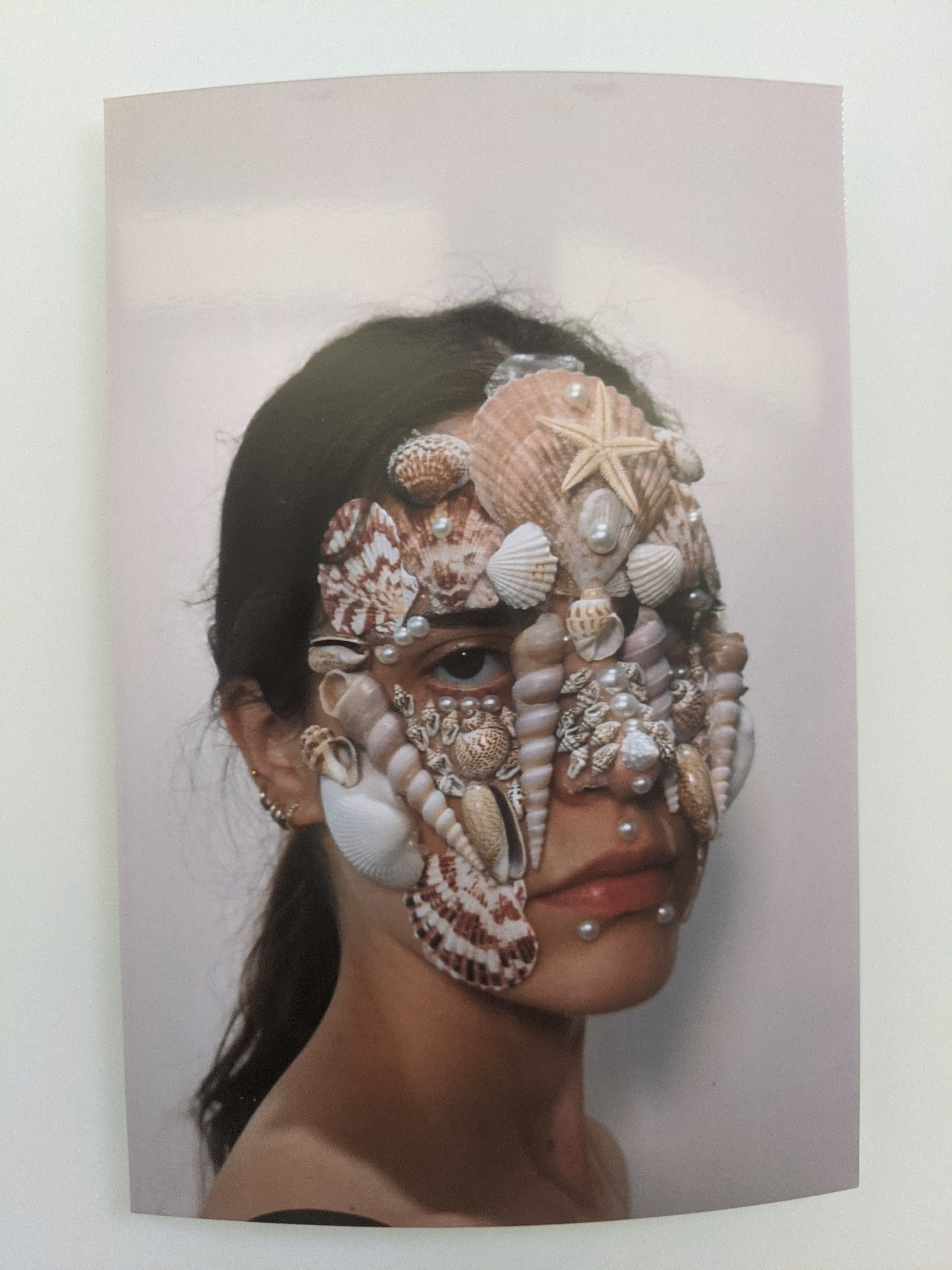
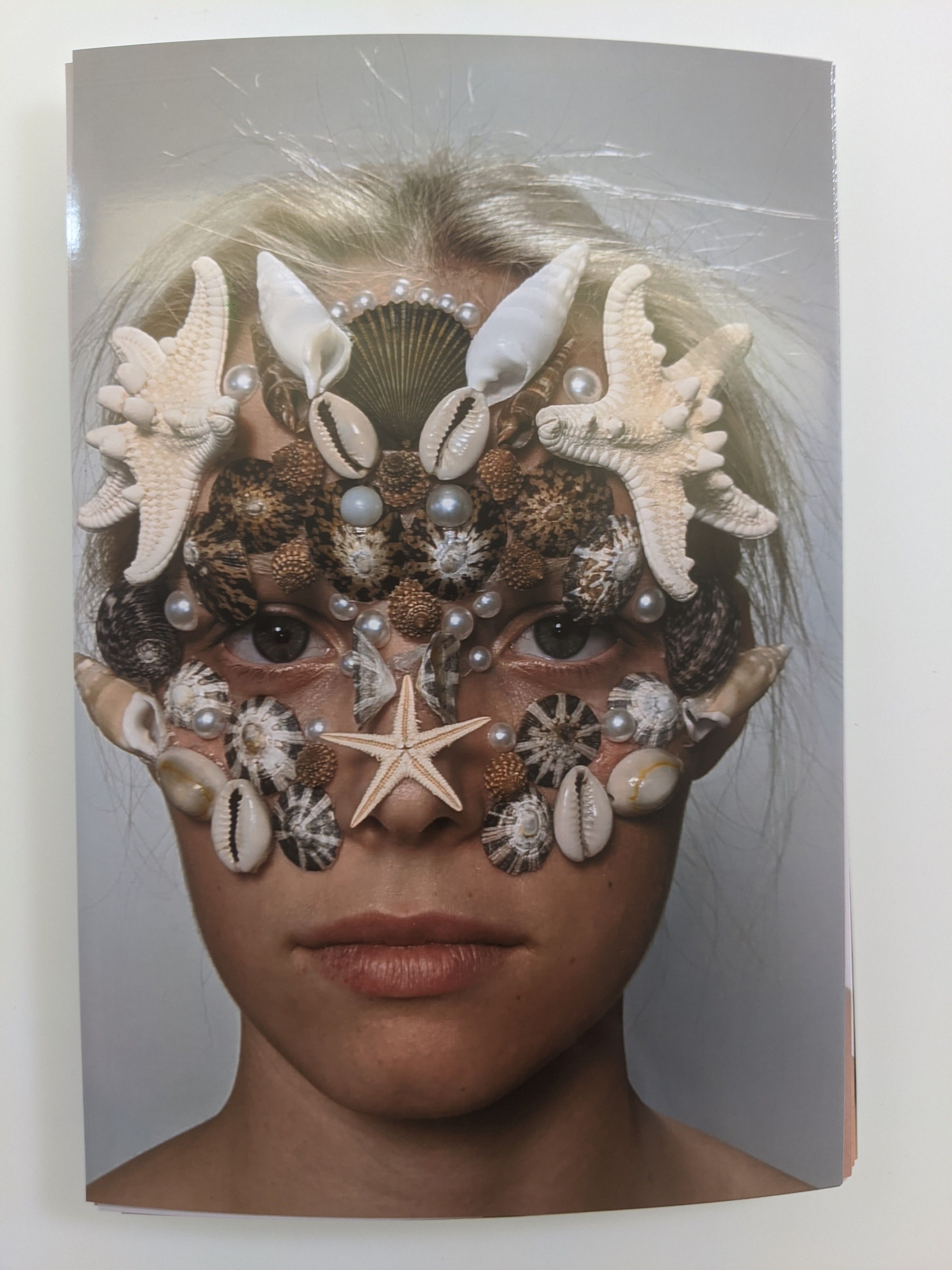
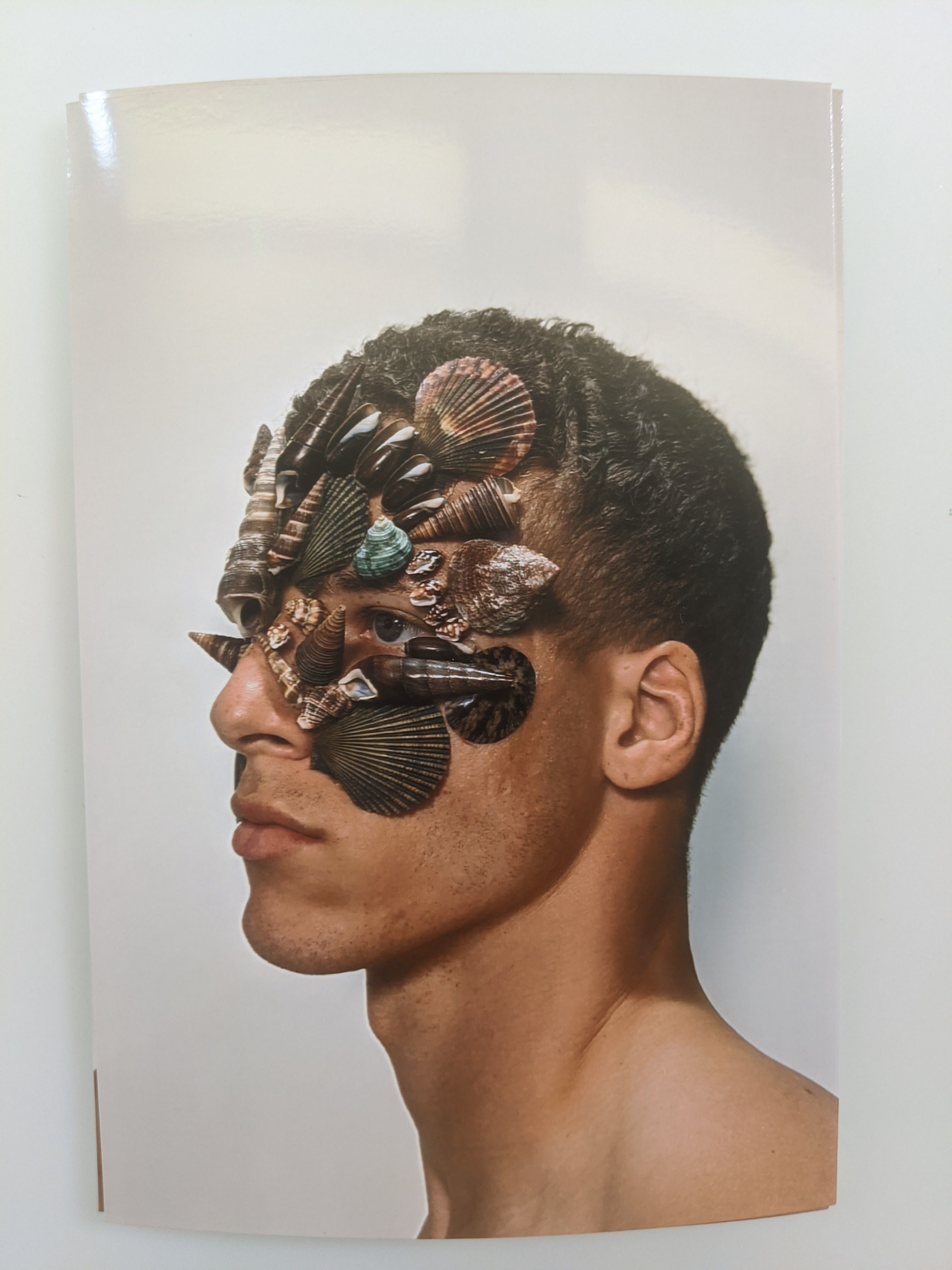
IF: They can work with whoever they want. I know that some makeup artists get very protective over their teams and don't want them to work with anyone else. I've witnessed that and thought it’s quite sad. I think everybody is here to learn. It’s important that everyone gains experience from whoever they can.
BW: When it comes to hair, do you have a preferred person you always work with?
IF: They tend to be just booked by the client as well, so it could be anyone. I work with tons of different people for shows.
BW: How did you find yourself alongside the few key players who’ve been dominating the field since the 90s while being so much younger in comparison?
IF: I started very young. I've been doing this for 12 years and worked really hard for a long time, for many different brands and magazines. Yes, you're right, there were these few big key players who did all the shows, all the big campaigns, and all the big editorials. At that time, magazines and advertising were pretty much the only spaces where artists including makeup and hair stylists as well photographers could show their work. Therefore, it was easy to keep those spaces exclusive.
Also, the work then was very different from now. When I speak to my industry friends who are much older than me, they talk about a completely different lifestyle. The budgets were different, and you had smaller teams. You went away for a job for two weeks, traveled to the Bahamas or the South of France, for example, and danced while working on the shoot for a week. Then you'd have a week off, and everyone would party. There wasn't any “Got to get TikTok, Instagram, and YouTube content.” Today, the scale of work is different. It’s not just a campaign you’re working on. You also need behind the scenes content for your social media platforms — it's a whole other monster now.
When I got into the industry, it happened organically and sort of out of the blue. I was studying Product & Industrial Design at Central Saint Martins and left in my second year because I just felt like I needed to be doing something else. I took up body painting because I was really good at painting — it was that or getting a bar job. I was doing kids' parties on the weekend and was getting paid between 40 and 80 quid for a party, which was loads of money for me. I then met some people and took up body painting for a performance company, and at some point, I was asked to do body painting for i-D magazine, and it went from there.
BW: Let’s cut to now — you’re super successful. While doing my research for this interview, I found that what a lot of your contemporaries in this space are doing is comprehensive. The shows, the commercials, the editorials, the celebrity makeup, the music videos. Do you feel you have to be in all these spaces too?
IF: It depends on what you want to get out of the business and from your craft. I like to do everything and have a holistic approach. If I did insane prosthetic jobs day in, day out, I'd get bored of it. Sometimes it’s nice to accept a commercial job and make money, but only doing those would lack creativity. I just had this conversation with my friend Jordan Hemingway. It’s about having various buckets: a commercial, personal, creative, and a whatever-you-like bucket. It's about making sure you fill them and keep them balanced. That's how the job remains interesting. Too much of one thing gets old quickly.
BW: Even if you had an unlimited budget, you wouldn't just choose the extravagantly creative projects?
IF: I would always end up doing a variety of things. It's about whatever you're inspired by. Personally, I like change. To touch on our earlier discussion about magazines being the creative space for people to showcase work, when Instagram came along, it completely changed that dynamic and democratized makeup, beauty, and creativity. Now you've got a 16-year-old who spends eight hours doing some crazy good makeup look at home, and millions of people can see it. If you’re on a magazine shoot, you maybe have half an hour for each look and have to get 12 looks out. It's important to accept that social media is the new editorial space.
There’s a golden ratio between talent, hard work, and self-belief. It’s like a triangle. You have to hit all parts to be successful. I am a total workaholic. I think it's so important for people to stay in their lane and do what feels vital to them and their creativity. The worst thing you can do is emulate what someone else is doing. You must find a new way.
BW: Another issue I want to touch on is that talent may be great but being pleasant to be around is important to get booked again. You’re cramped with hundreds of people backstage, all of whom are stressed and trying to make things work under time pressures. You have to be a people-person to work in this environment. One day you’re the therapist for models, the next day you’re a 6am entertainer. You have to make everyone feel comfortable. You need interpersonal and managing skills, as you’re simultaneously also in charge of a team of 60.
IF: You're right. No one wants to work with an asshole. I’m managing a team of 60, people’s anxieties, and am trying to micromanage the artistry — going around and correcting a winged eyeliner or tidying up a red lipstick. I’m also speaking to the designer about who's going to have which look on the day, because they couldn't make up their mind the night before. It’s exhausting, but it's also part of my language now. I’ve done it for such a long time. I've got a pretty strong backbone at this point, and I hope that all my artists would say that I’m a pleasant person to work for. I love all of them. I've always thought that if you can't share a bed with somebody you're working with, maybe don't work with them. I want to be around people that I feel are easy to connect to, easy to work with, and with whom I can have fun. I've always had great teams around me. The industry is cutthroat enough.
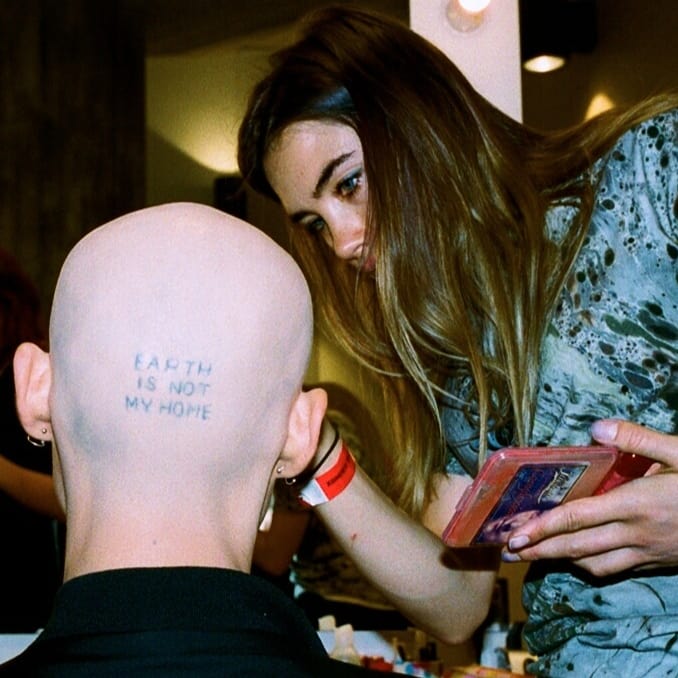
BW: In the beauty industry — just like in fashion — there is a division between jobs that pay and jobs that are prestigious. You don’t really get paid for a magazine cover, for example. What jobs were game changers for your career?
IF: It’s wild to me that there are people who think that you get paid for magazine covers. After 12 years of doing this job, I've never been paid for an editorial. However, in editorials you can live out your creativity. You get to work with amazing photographers and prestigious magazines. If you get a cover, you also get a better agent and better commercial jobs. You have to prove yourself, so the team trusts you and wants to work with you again.
I'm so blessed to have lots of moments that have boosted me. Mert and Marcus, for example, have been really supportive of me. They did a lot for my career and creativity. Through them I started working with i-D and launched Dazed Beauty. I've also been developing makeup for brands for the past years, such as Tom Ford, Louboutin, Burberry, and Byredo.
BW: You’re saying developing the makeup, so these titles were not just PR titles of “Oh, we have Isamaya, look at us!” but you're actually in the lab.
IF: [Laughs] Of course not! I'm right there mixing colors, “Do more yellow! More black! Can we make this in a glossy texture?” Really, I'm in there with the product designers working on packaging, and I look at material samples. It's a fully immersive job. I wouldn't want to put my name on something I wasn't involved in from start to finish.
BW: I hear now the Byredo makeup is doing better growth numbers than the fragrances.
IF: Great.
BW: So now you have your own brand — it was time. What was the push?
IF: Yeah, I think I've done it long enough for other people. And there were things that I felt like I wouldn't be able to do unless I myself was behind it and promoting it. And that's everything from product to packaging to the way I advertise something to having myself in. I guess it just felt like the right moment to do it. I still kept a lot of my clients but it's nice to do your own thing ultimately. And I've always done creative direction and so it made sense for me to just do the whole thing right.
BW: Do you have investors? How did you find a factory?
IF: I have business partners who work with me on the investment side of things, and I have a really great team in Italy who helps with the production side of things. You're always going to need them in any business. Creatively, it's all me and my team though. I've worked with those factories before, so I have good relationships already. It all happened quite organically. I've been doing this for such a long time. You meet people and build relationships. That's the beauty of it. It kind of comes full circle.
BW: You were also at a point where you didn’t need to rely on external communication channels for your brand such as commercials or billboards. You are the communication channel.
IF: I haven't even really thought about it. As far as I'm concerned, these platforms do a lot of numbers, TikTok especially. Beauty is such an interactive thing — I don’t know if having big posters up would affect anything.
BW: You mentioned that you're a workaholic. What’s special, however, about the industry you're in — even if you’ve established yourself — is that you always have to be backstage with your makeup kit on, right? It’s still 6am call time.
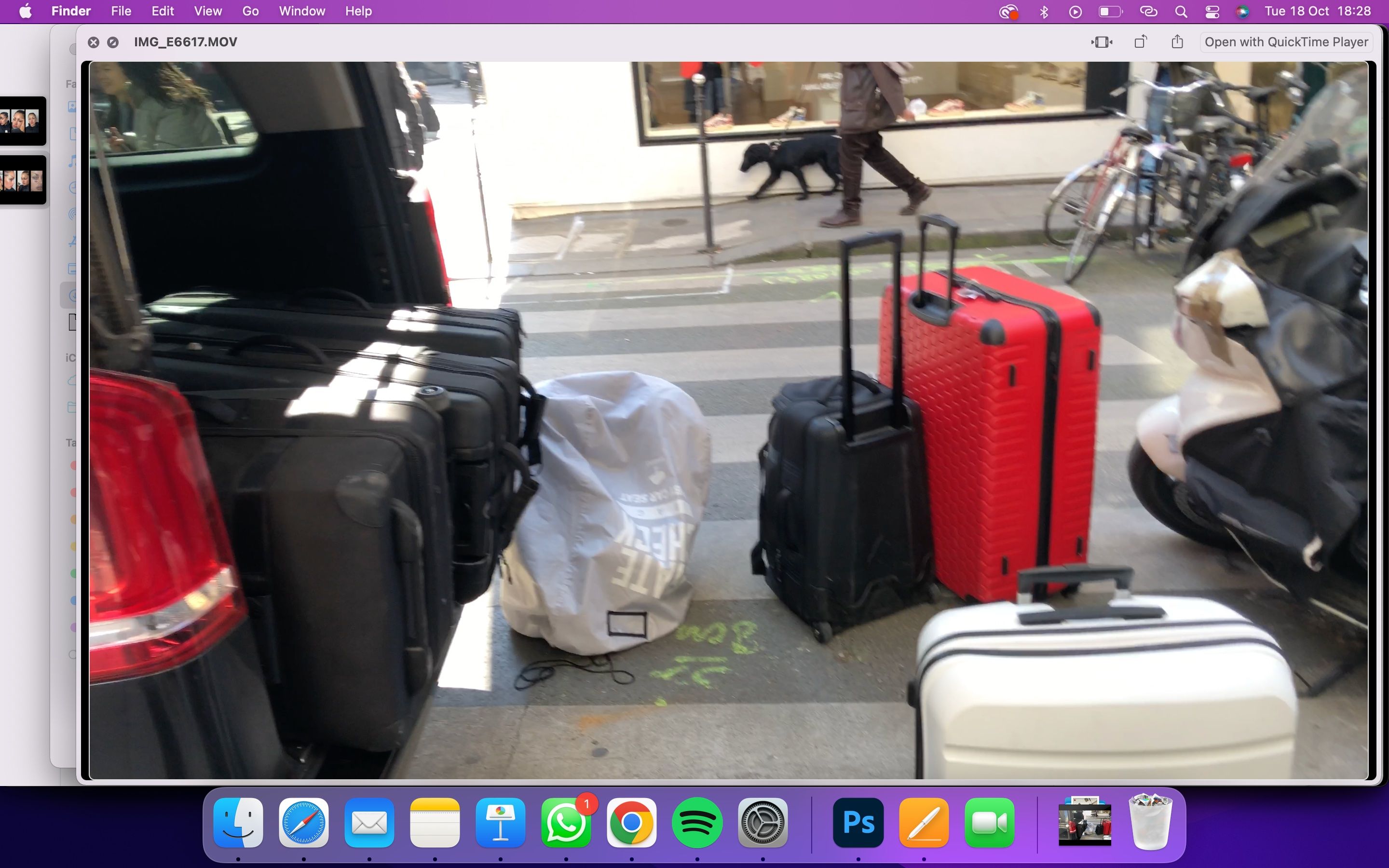
IF: There are a lot of makeup artists out there who don't turn up to work anymore. I know a few and good for them. They've worked hard and earned it, so they can do whatever they want. For me, it's important to turn up. But people have no idea how hard this job is. You're on your feet constantly, you're carrying three makeup kits, which are about 30 kilograms each. That's 90 kilograms that you're carrying around between countries and additionally personal luggage. Flying onset, offset, waking up at 4am or working until 4am plus running a business which is 24 hours a day, literally. It is such a physically and mentally intensive job. I'm very fortunate now to have a PA and a lot of other people that help me with management, production, travel, and organization. It takes an army to do what I'm doing at this level. I appreciate everyone who works for me and helps me get it done, but it does take its toll.
BW: How do you allow yourself to give room to acknowledging that you’re tired? Because you have to, right? Even though I’m sure the world is constantly reminding you of how many people would kill to be in your position.
IF: I practice gratitude, of course. But it’s all relative, isn’t it? It's fine to acknowledge that you're totally knackered at 5am and you’re on a set in the middle of nowhere, you didn’t have a chance to eat dinner, and you just want to be in bed. It's important to remember why you're doing it. Ultimately, you just need a roof over your head, food, clean water, and very few things. For anything more, you should be grateful.
There can always be someone else who could take your job. If they do better than you, they should take over. It depends on what your priorities are, and mine have always been to be my most authentic self. If somebody wants to work with somebody else, maybe that's simply a better fit. I know what you're hinting at. It's a highly competitive industry for all of us — makeup, hair, models, casting, and photographers. You just have to do the best you can, be your authentic self, and try not to worry about these things. If you're right for the job, you'll get the job.
BW: I'm glad to see and hear, even after an insane month like this, you're not at total emotional exhaustion and you don't want to quit!
IF: [Laughs] You didn't see me a couple of days ago. Actually, you caught me on a good day. Apart from the bird shit.
Credits
- Text: Brenda Weischer
Related Content
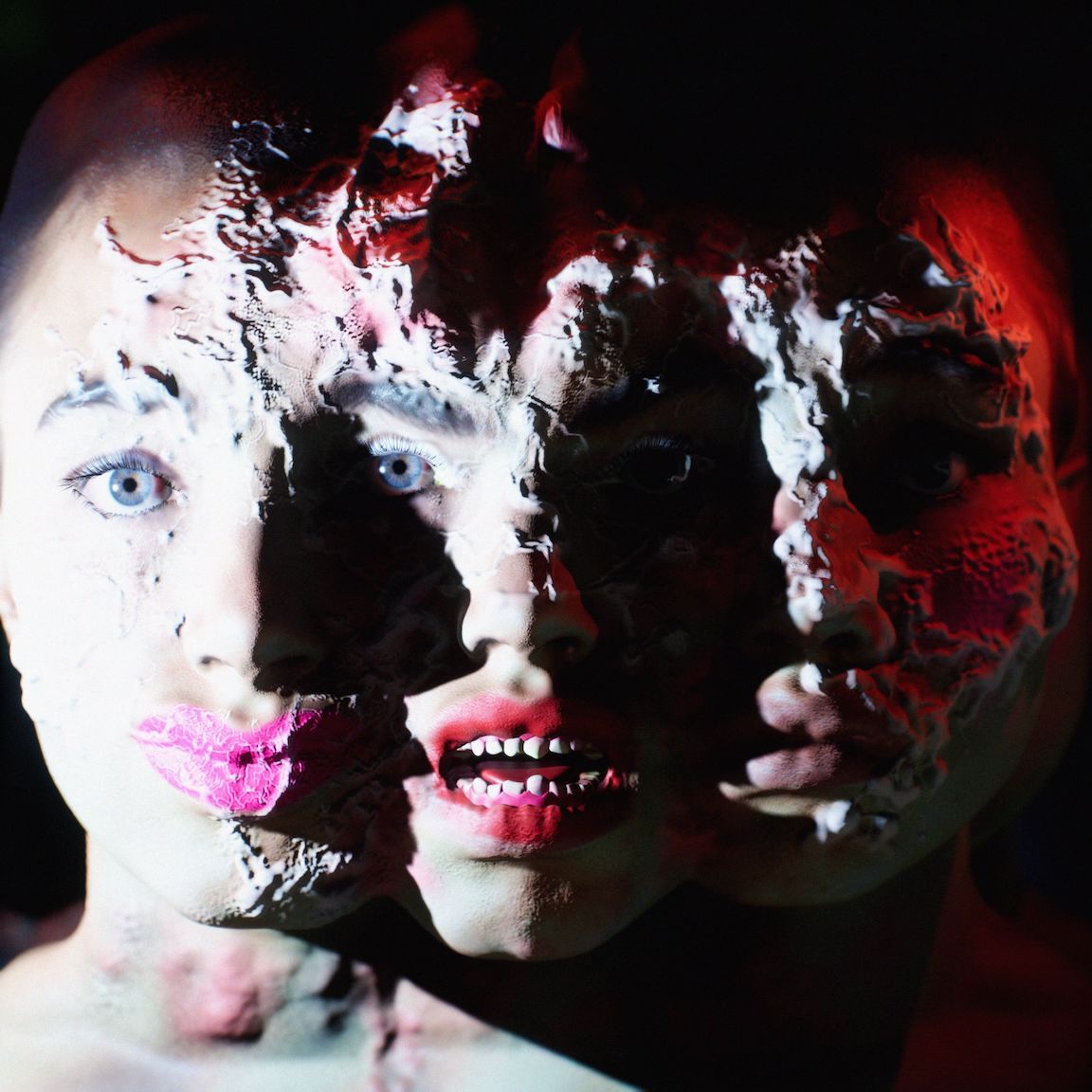
Teeth, Manure, All That Shit: ISAMAYA FFRENCH’s Anti-Beauty Makeup
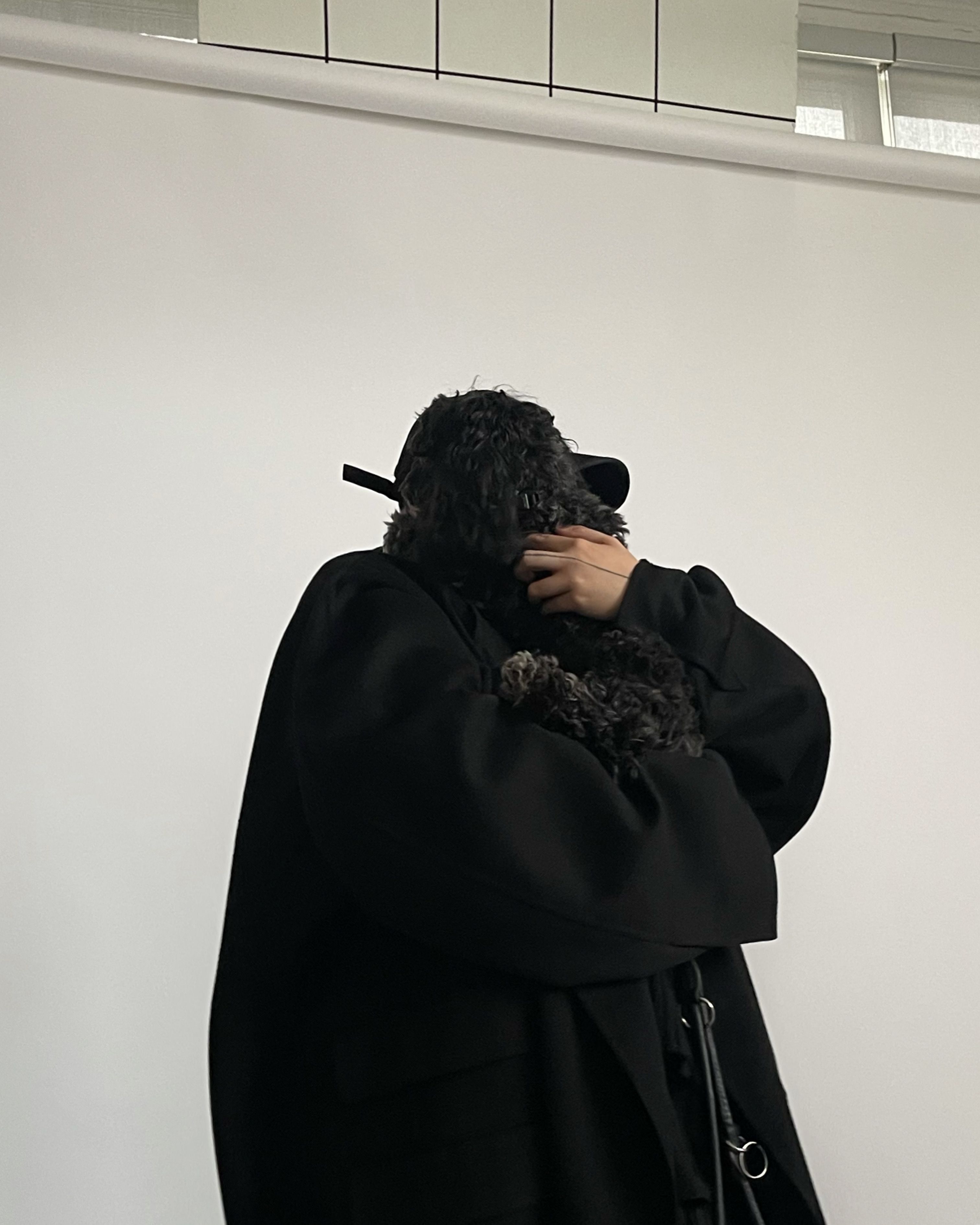
Brenda’s Business with PETER DO
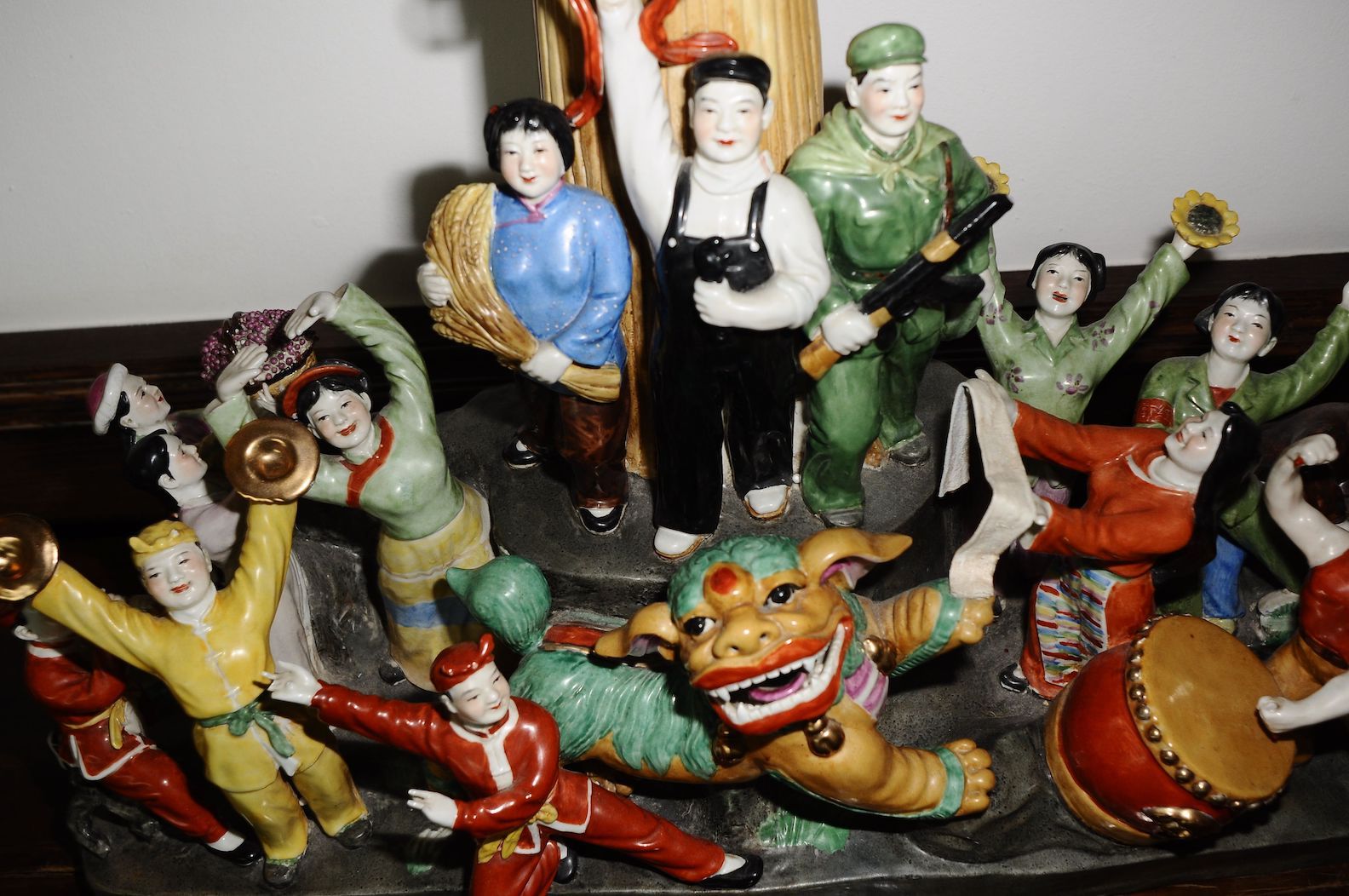
Dinner with Gucci and 032c: REFERENCE BERLIN at the China Club
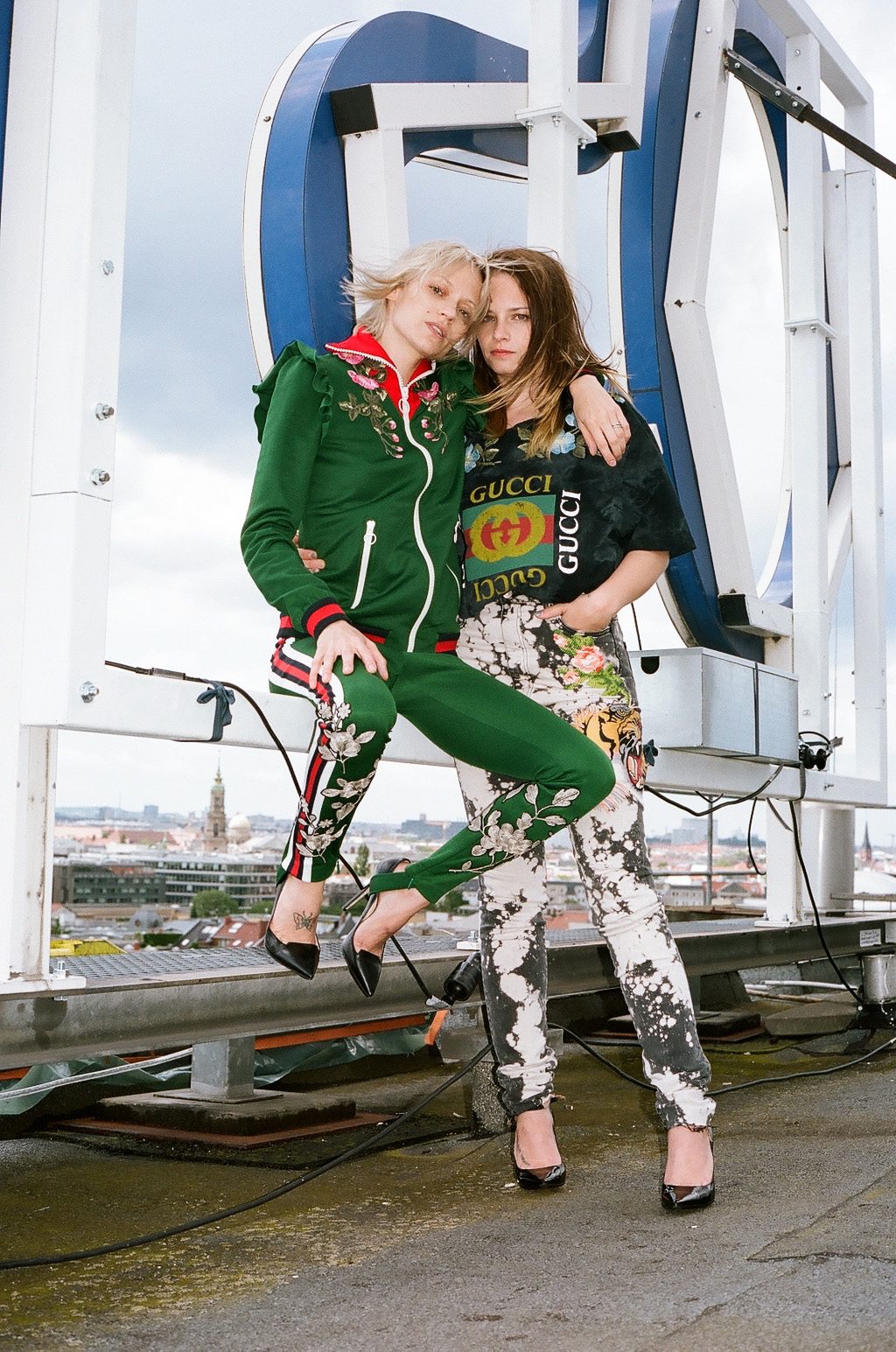
GUCCI AXOLOTL
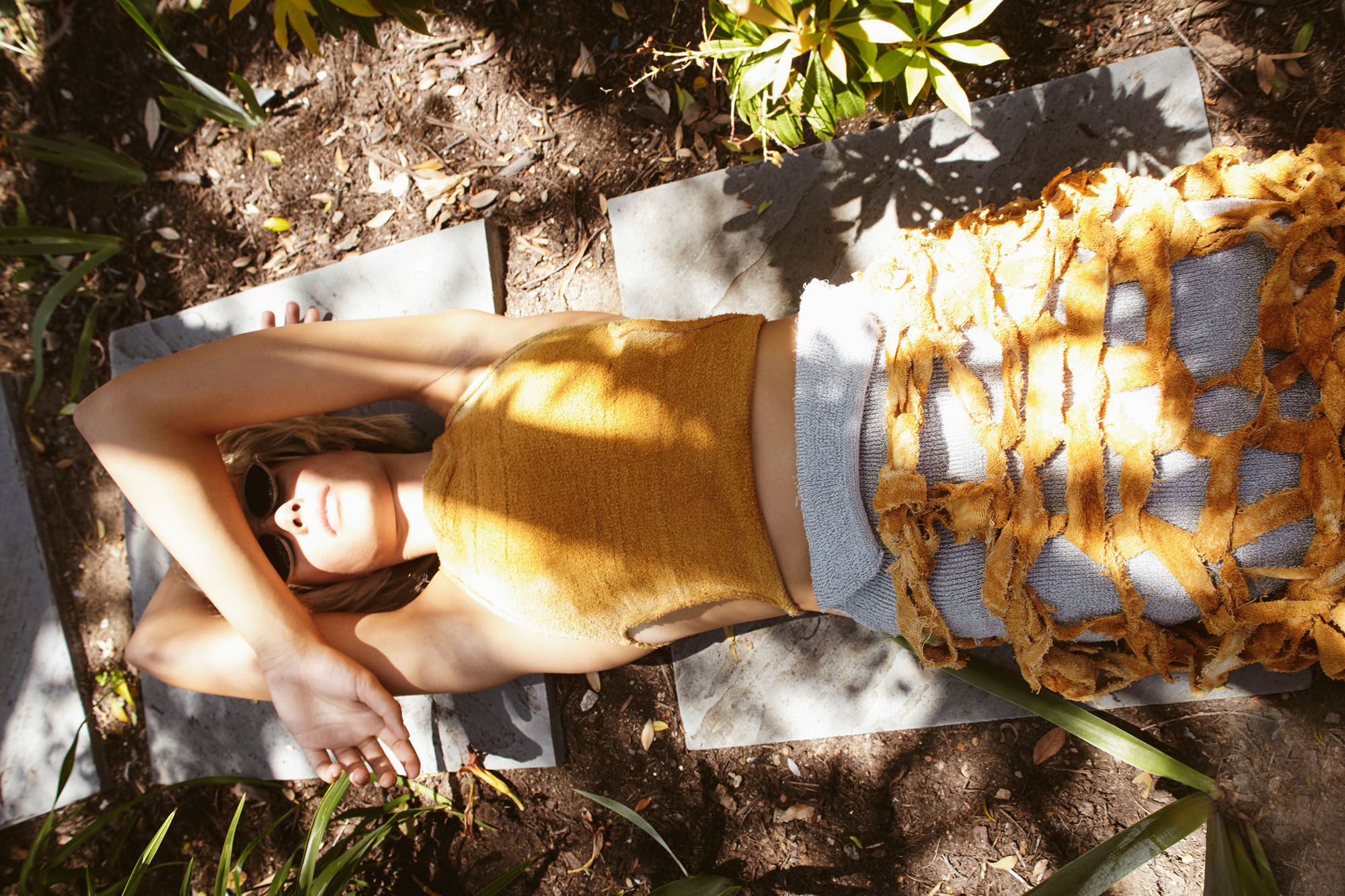
“I forgot my mantra”: CHRISTINE HAHN and MORGAN REHBOCK Team Up For a Late Summer Reverie in LA
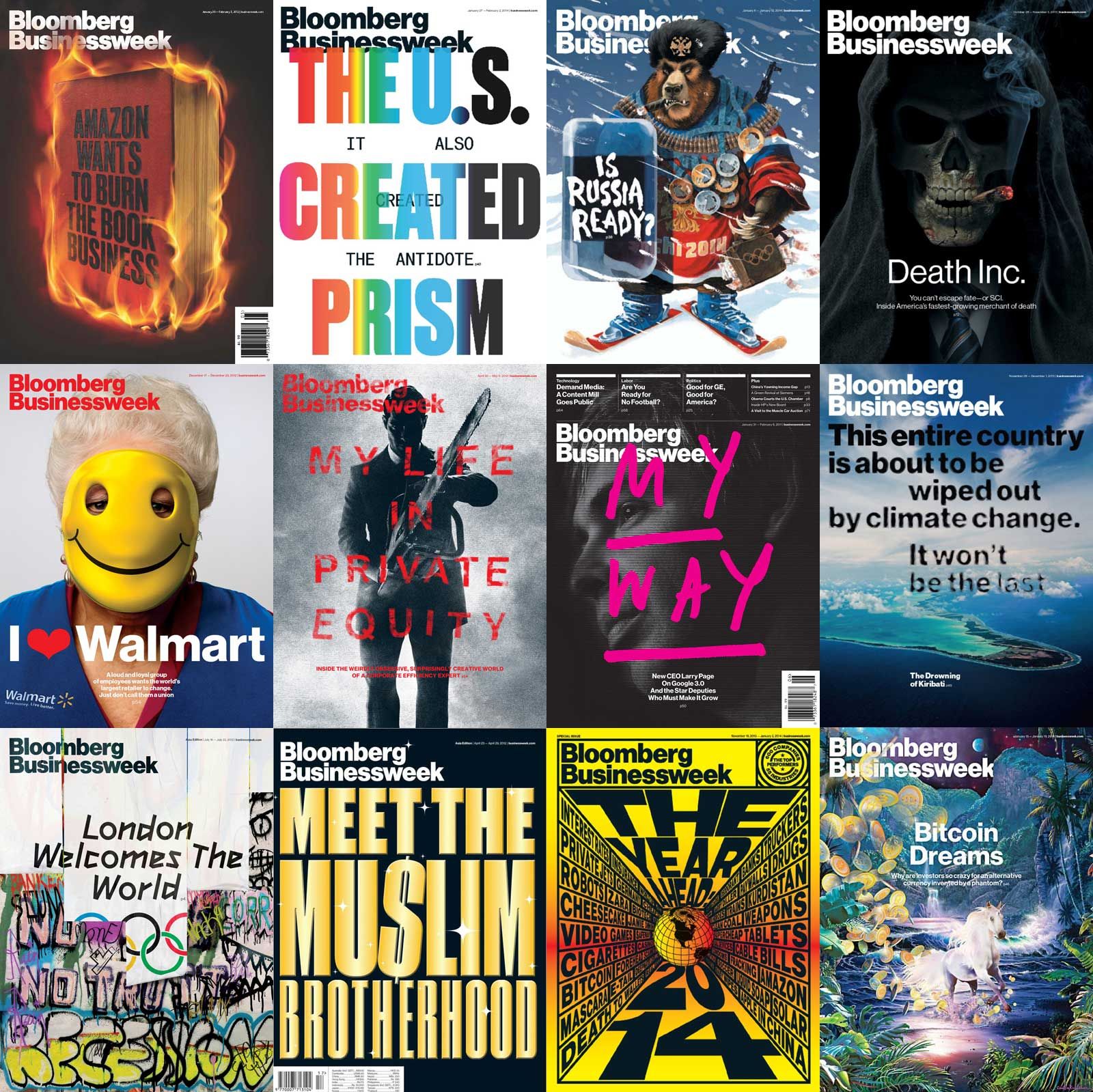
Business Made Sexy: 032c Interviews (Former) Businessweek Creative Director RICHARD TURLEY
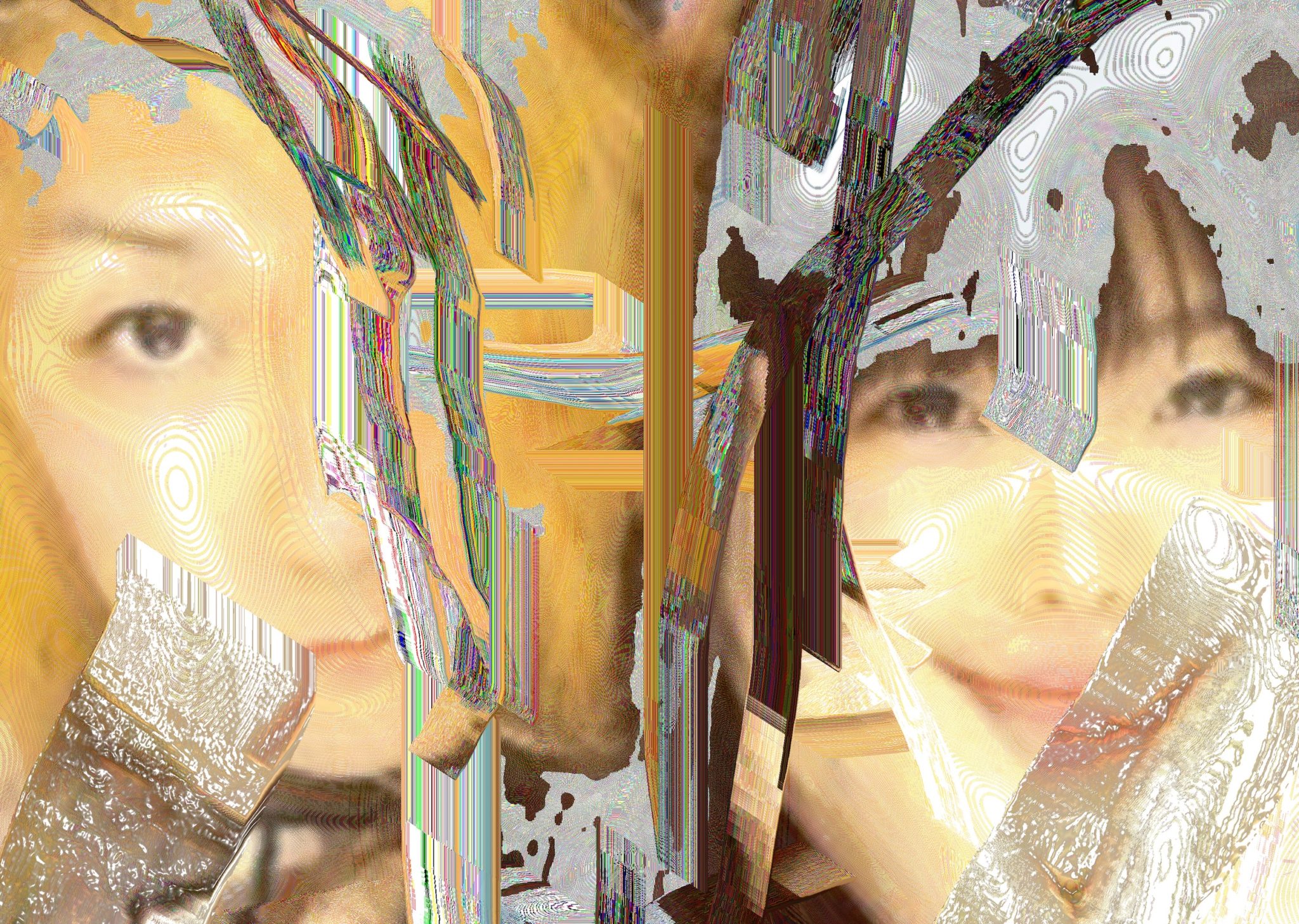
CREATIVITY IN THE CONVERGENCE AGE
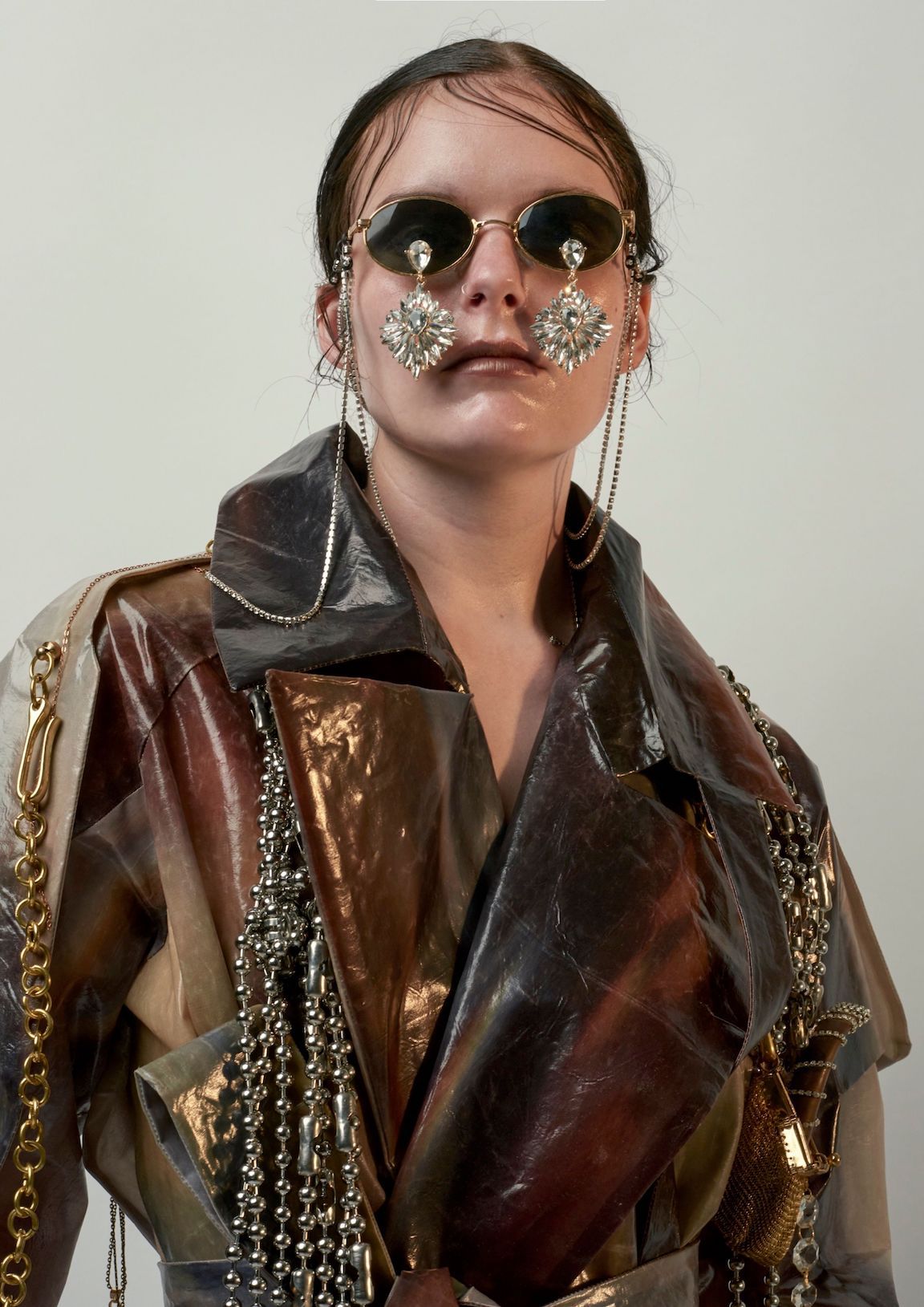
EYEWEAR EXPERIMENTATION: Visions of the Future
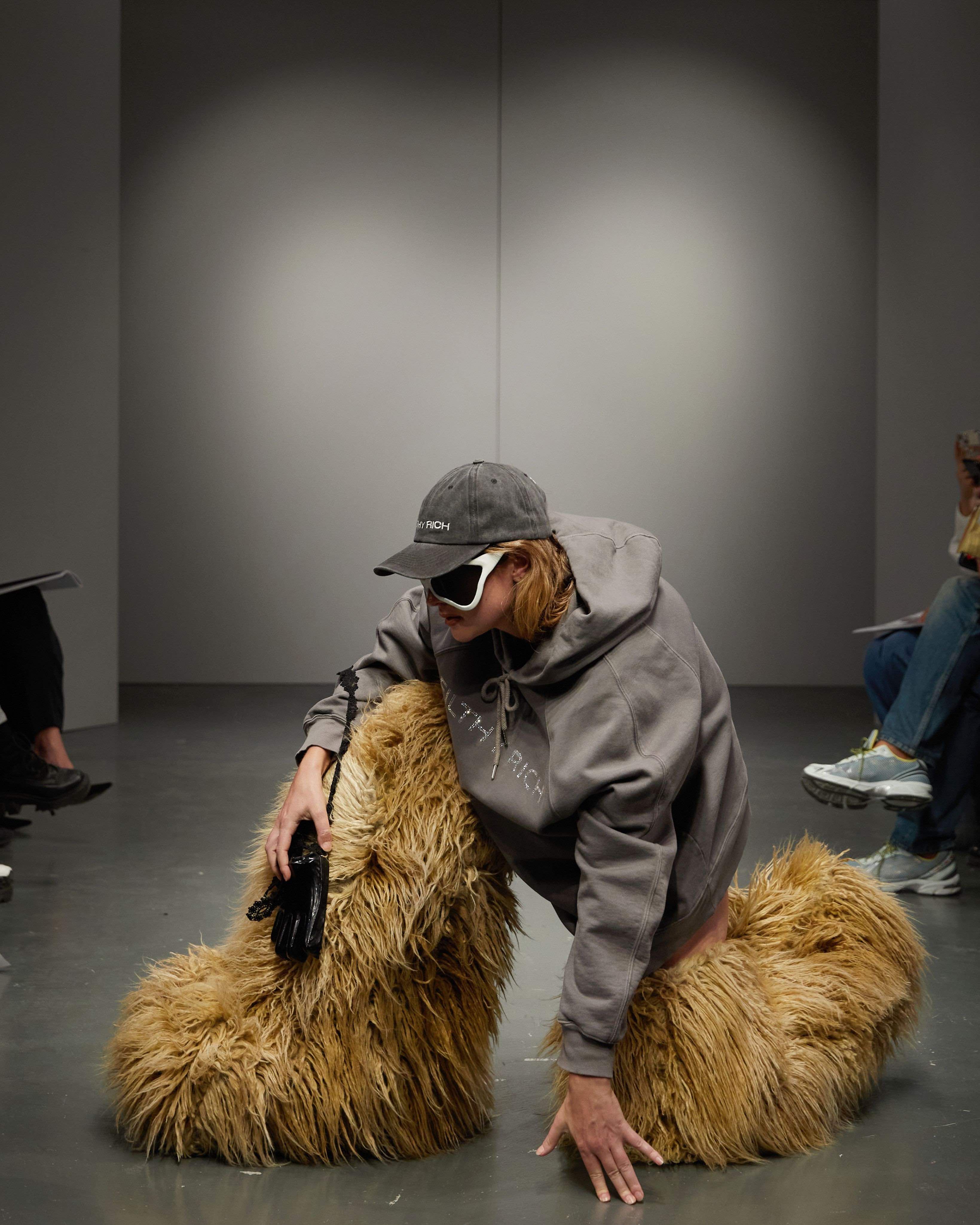
Head Over Heels: AVAVAV
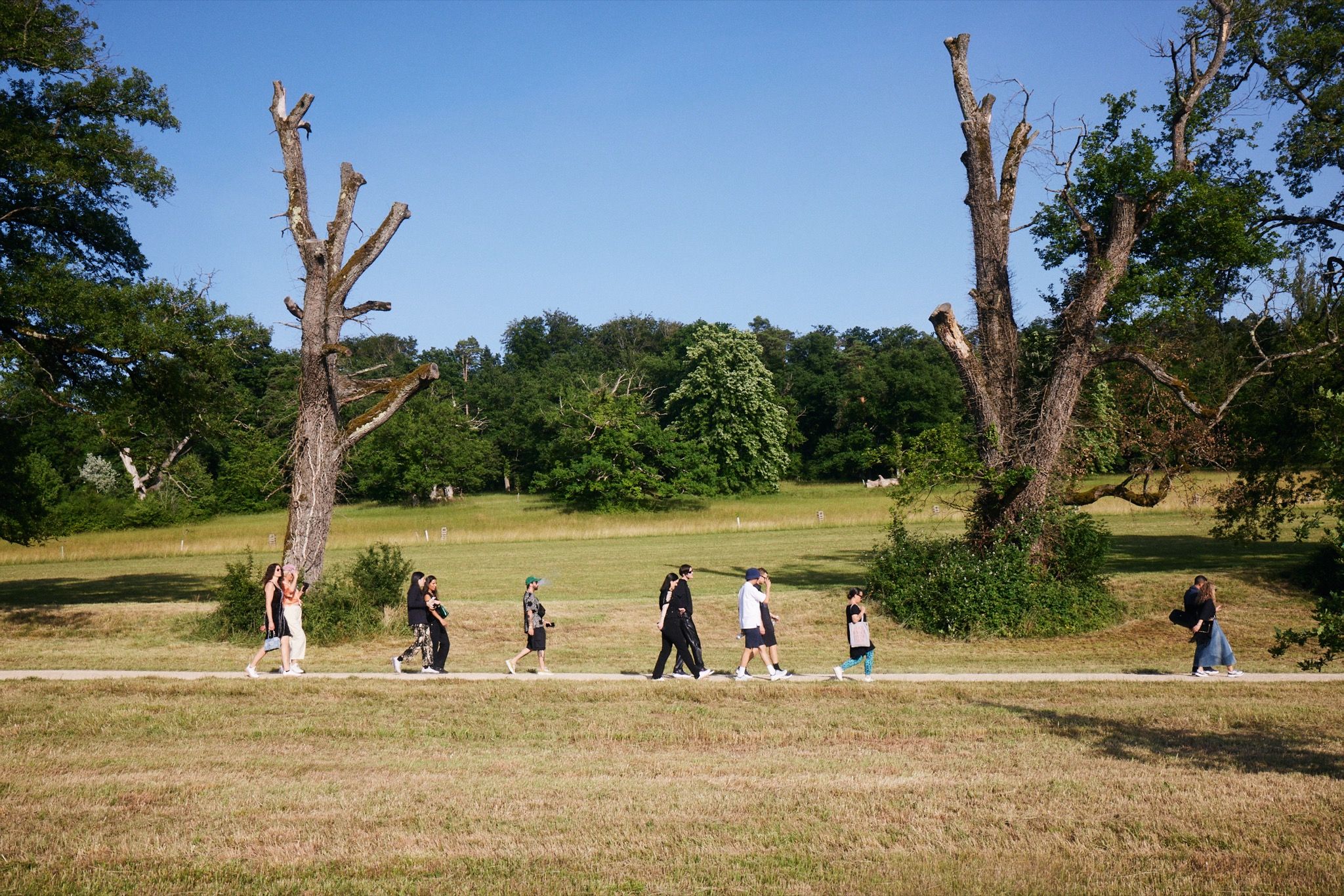
Creativity in Motion: On Walks of Life
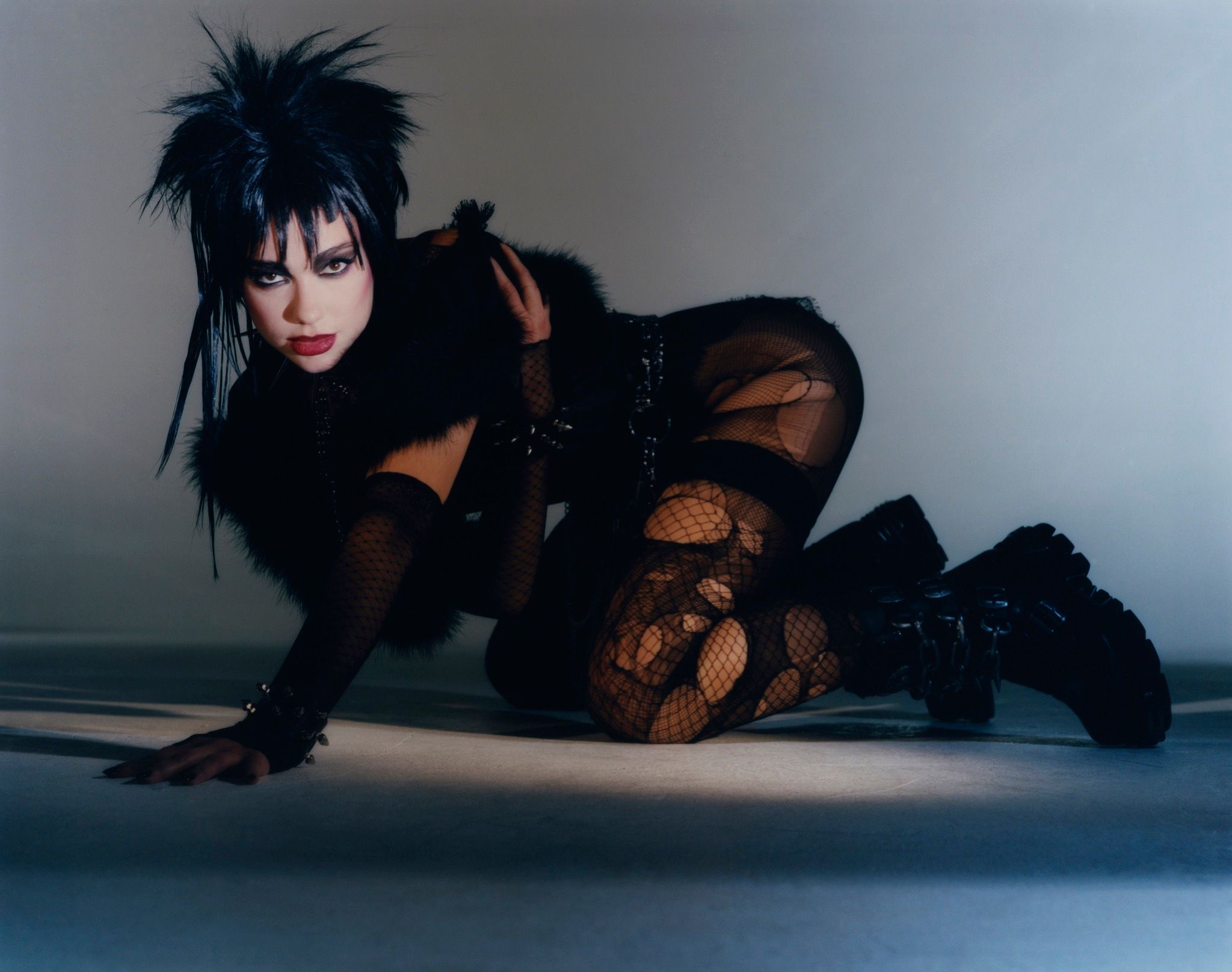
DUA LIPA, At Your Service
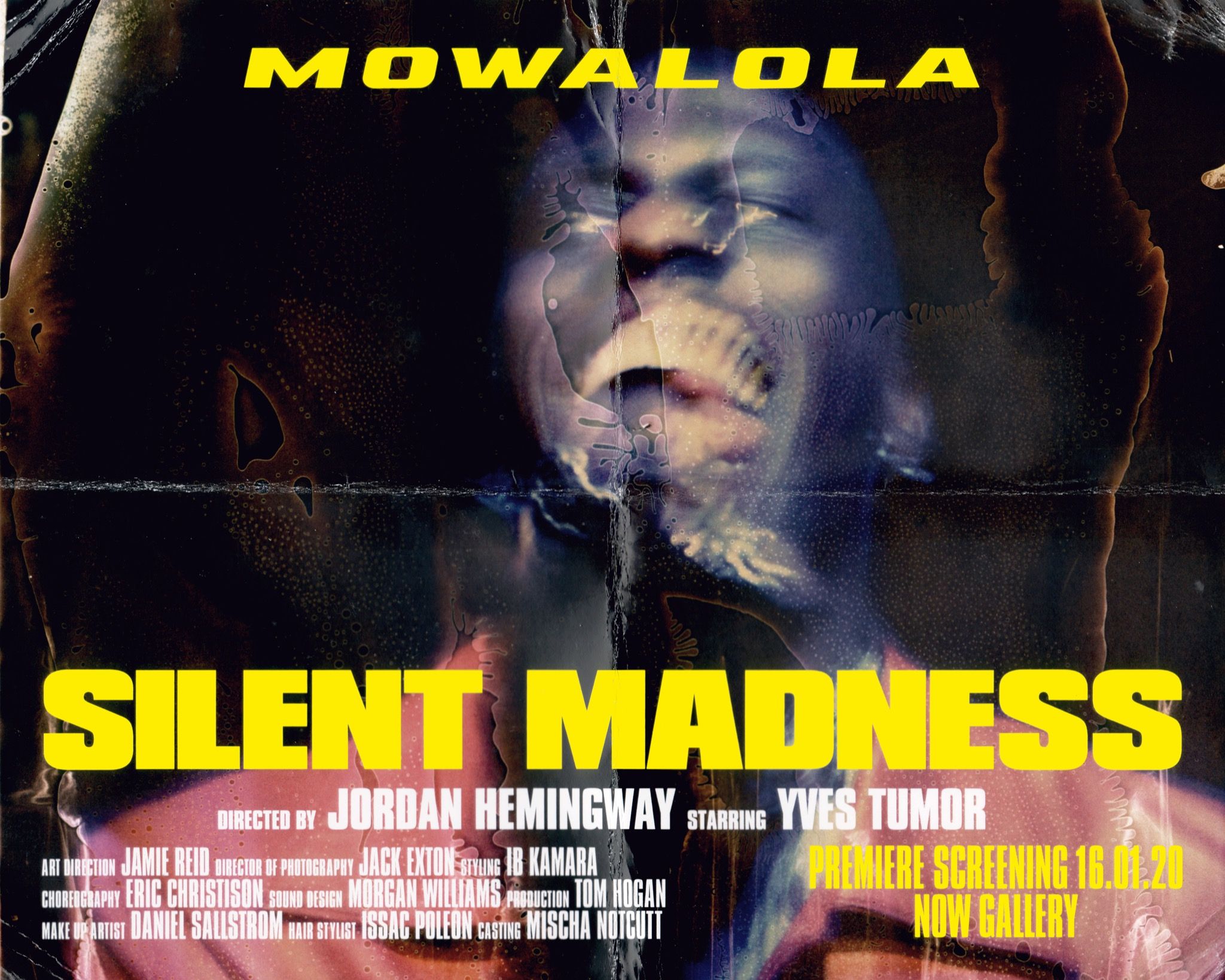
Silent Madness: MOWALOLA and JORDAN HEMINGWAY present a psycho-techno-fashion thriller
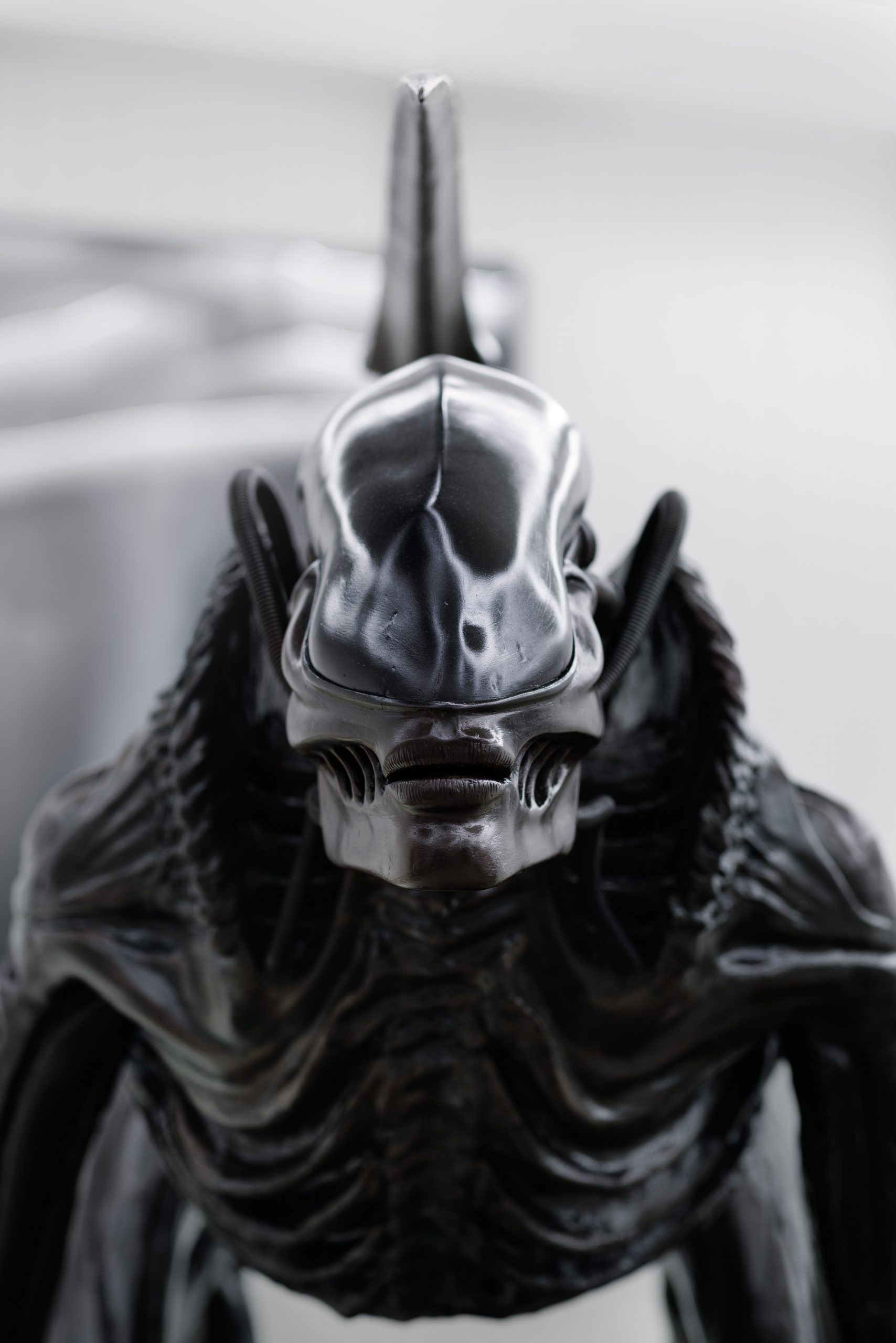
HR GIGER & MIRE LEE: Horror, Slime, and Satanic Eroticism